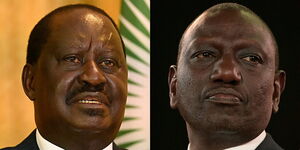Motorists are set to face increased costs with the removal of the Ksh100,000 maximum cap on the 2.5 per cent Motor Vehicle Tax, as proposed by the National Treasury.
Under the new proposal, the minimum amount payable remains at Ksh5,000.
This means that owners of expensive vehicles will now pay significantly more than they would have under the capped proposal.
For example, a vehicle priced at Ksh30 million will incur a Motor Vehicle Tax of Ksh750,000. This represents an increase of Ksh650,000 compared to what would have been paid under the previous capped system.
Notably, Ksh650,000 can be used to buy a brand-new car or a second-hand vehicle in good condition.
"To expand the tax base and make our country self-reliant, I propose to introduce an annual motor vehicle tax at the rate of 2.5 per cent of the value of the vehicle subject to the minimum amount of Ksh5,000 per annum," Treasury CS stated during the reading of the budget.
The removal of the cap was also confirmed by Treasury Principal Secretary Chris Kiptoo who noted that the proposal had already been submitted to the Finance Committee which will be presenting a report to Parliament next week.
However, he noted that the final decision on the capping would be decided by the committee and MPs.
"There is no ceiling, The minimum amount is Ksh5,000 and there is no ceiling upwards because that was the last proposal we had. This is something we will wait for the Finance Committee to make a decision on," he stated.
Meanwhile, some Kenyans have raised concerns over the unprecedented double taxation that will happen with the tax.
At the centre of the contention is the valuation of vehicles. When a vehicle is valued, this includes the taxes that have been paid for it such as the import taxes among others.
Therefore, should the government decide to go with the whole value of the car, the government will be imposing a tax on a tax.
On the other hand insurance companies have warned that motorists will opt for third-party coverage should the tax be passed.
“With motor vehicle insurance being compulsory in Kenya, we anticipate a major shift towards third-party motor insurance if this tax is implemented," the Association of Kenya Insurers (AKI) warned.
"Consequently, motorists will face higher risks, as they will essentially only be covered for third-party liabilities, leaving their vehicles unprotected in the event of accidents."












